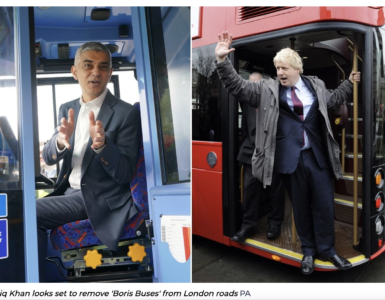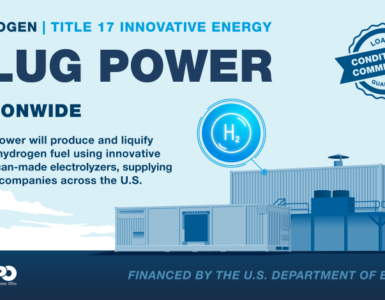In Korea, the country of hydrogen mobility, Air Liquide is engaging in major projects.
[Air Liquide] Korea is ranked fifth among the most innovative countries in the world*. Hydrogen mobility plays a big role in this ranking. The country aims to become the world leader in 2040. The country’s real strategic goal in the context of energy transition, is where hydrogen drives the Korean economy and mobilizes a number of industrial players.Here, Air Liquide naturally finds its place as a global player in hydrogen. Together with many local partners, the Group is developing the sector across the entire value chain (production, storage, distribution, application) and several large-scale projects.
Somie Kim, Vice President Hydrogen Energy of Air Liquide Korea, tells us more. In Korea, innovation is seen everywhere. In companies, but also in the street and the whole country. It’s quite impressive! Please tell us, what is the secret of this country?
🔥 What about we co-host a webinar? Let's educate, captivate, and convert the hydrogen economy!
Hydrogen Central is the global go-to online magazine for the hydrogen economy, we can help you host impactful webinars that become a global reference on your topic and are an evergreen source of leads. Click here to request more details
It’s very simple! The Korean government is actively promoting digital transformation, such as carbon neutrality through eco-friendly policies and expansion of investment in promising industries such as data, network, artificial intelligence, robots and drones.And hydrogen is at the center of this strategy?
Yes, absolutely. The hydrogen economy is one of three strategic industries that the Korean government is fostering as future growth engines, and it is also included in the Korea New Deal policy announced in July 2021.
Through massive investments and regulatory improvement, the Korean New Deal, aiming to transform the economy to make it greener, with more digital services and stronger safety nets with a total investment of 160 billion euro (220 trillion Korean Won) to create more than 1.9 million jobs by 2025.
What is the goal of the other plan named “Hydrogen Economy Roadmap” launched by the government?
In January 2019, the Korean government expressed its vision to become a global leader in hydrogen vehicles and fuel cells by 2040, and announced an ambitious roadmap which outlined the goal of producing 6.2 million fuel cell vehicles and rolling out at least 1,200 hydrogen stations by 2040.
For this reason hydrogen mobility is the heart of the problem. Why is that according to you?
Simply because hydrogen mobility is expected to greatly contribute to reducing greenhouse gases and fine dust!Air Liquide holds a core position in this matter. How do they align with this plan?
Air Liquide Korea is well recognized as a great contributor to the development of the hydrogen ecosystem in Korea together with Hyundai Motor, with which we maintain a close partnership.
In the downstream market, we are participating in the HyNet Consortium with 13 companies. HyNet aims to build up 100 hydrogen stations for passenger cars by 2022.
Focusing on Heavy Duty market development, in August 2020, we invested in the Incheon Airport Flagship Project and signed a contract for the installation of the largest hydrogen bus station in Korea and a 10-year hydrogen supply contract.
And then, in March 2021, we entered into another consortium named KOHYGEN to build hydrogen stations for buses and trucks. KOHYGEN targets to build and operate 300 heavy duty hydrogen stations by 2040. Air Liquide is the only International Gas Company joining these two consortiums in Korea.
The Incheon Airport T2 hydrogen refueling station was inaugurated in July 2021. With a capacity of 1 ton of hydrogen per day, the station is able to serve 40 buses or 180 passenger cars per day.
The introduction of this hydrogen station is in line with the strategy of Incheon International Airport Corporation, which strives to become the Northeast Asia air logistics hub, and promotes itself as an eco-friendly international airport.
As such, Incheon International Airport Corporation will also gradually upgrade its current fleet of shuttle buses with hydrogen buses. Air Liquide designed the station and supplies the molecule while HyNet operates the station and Hyundai Motor provides the hydrogen buses.
Did the meeting in Paris in 2018 between Benoît Potier, Chairman and CEO of Air Liquide and Mr Moon Jae-in, the President of South Korea speed things up?
Yes. It served as an opportunity to change the dynamics of the hydrogen ecosystem development. After that meeting, President Moon’s cabinet has moved full steam ahead to create a hydrogen ecosystem in Korea.
An institutional basis for implementing its ambitious vision was established, such as the enactment of the world’s first hydrogen law, the inauguration of the Hydrogen Economy Committee, etc.
As a result, South Korea became the world leader for two years in a row in three categories—supply of hydrogen cars, hydrogen refueling stations, and fuel cells, but also exported new products such as hydrogen fuel cell systems for hydrogen trucks and passenger cars, and fuel cells for power generation, laying the foundation for the hydrogen industry to emerge as a promising export industry in the future.
Are there many active projects for Air Liquide Korea?
Yes, a lot! Air Liquide signed an agreement to supply key equipment and technology licenses for a 30,000-ton annual production facility for liquid hydrogen, which SK E&S plans to start commercial operation in the second half of 2023.
In order to build up hydrogen station infrastructure, Air Liquide Korea is the only industrial gas company participating in both HyNet and KOHYGEN consortiums. In May 2021, a MoU (i.e Memorandum of Understanding) with Lotte Chemicals was signed aiming at investing in a high-pressure hydrogen filling center using a low-carbon hydrogen for the mobility market.
Air Liquide seems entirely established in the economic and industrial area of hydrogen mobility…
Absolutely. That’s the sense of the MoU we signed with Jeollanam-do Province and Yeosu City for the promotion and development of the hydrogen industry in the region. Thanks for staying up to date with Hydrogen Central.
We plan to further accelerate our investment in building hydrogen value chains in the province, including heavy-duty hydrogen stations, hydrogen filling centers, and liquid hydrogen production facilities.
What is the size of the fleet of hydrogen vehicles in the country?
This story continues you can read the rest of this story following the link below.
In Korea, the country of hydrogen mobility, Air Liquide is engaging in major projects, January 24, 2022








